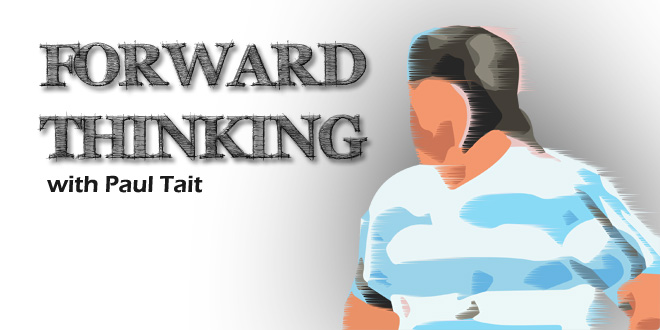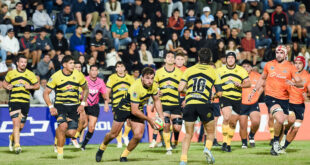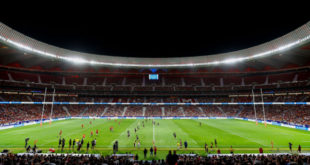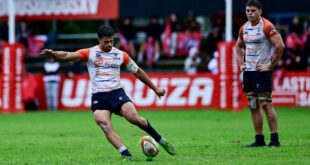For the second time in eight years Argentina will play in a Rugby World Cup Semi Final. The South American country of 43 million will face the two-time World Champions Australia next Sunday with the winner joining either New Zealand or South Africa.
The translation of this, in rugby terms, is that three previous two-time champions are battling it out to win for a third time with Argentina being the only possibility of there being a new name on the Webb Ellis Cup.
Underdogs
The underdog tag will go to Argentina for the above reason alone and will do so while the debate rumbles on as to whether or not Argentina are in fact underdogs. Indeed, on late Saturday afternoon in a Cardiff restaurant I exchanged predictions with four others. Opinions were divided with two picking Ireland and two Argentina.
After the game, as I caught the train, I was largely surrounded by Irishmen and New Zealanders who, among themselves, believed victory to be Ireland’s. I reflected on my own prediction of Argentina by 6 upon chatting with others and very much expected Sunday’s game to be now which could go either way.
The 17-0 start caught virtually everyone by surprise, but was not a total shock. Reason certainly existed for comparisons to New Zealand vs France the night before but Ireland was expected to fight back.
The Irish certainly did to make it a three point game before the South Americans reasserted control to win by a record margin of 23 points. Scoring, though, mattered not. It was how Argentina played which was telling.
Unlike in 2007 Argentina used the dimensions of the pitch to their advantage and relied less on the dominance of the pack. The forwards were ball carriers for which Martín Landajo and Tomás Cubelli could use their go-forward ball to spin the ball wide to the dangerous back-three.
Spin the ball they did with Argentina’s four tries going to winger Juan Imhoff (2), fullback Joaquín Tuculet and outside center Matías Moroni who scored while playing on the wing. Such names were unknown, unwanted or underused until Daniel Hourcade’s arrival in the final weeks of October 2013.
Improvisation arrived and slowly took over. Now Argentina enters a World Cup Semi Final against Australia on very even terms, or so the Irish and neutrals seem to have communicated to me post match at the Millennium Stadium as a combination of ‘beat Australia’ and ‘well deserved’ messages were given to me as I wore a Pumas shirt.
Equals
Pichot’s request in Marseilles in November 2004 was for the world to take notice. He was, of course, asking for a place for Argentina in the global order which was and is a closed shop with little room for entry from those on the onside. He had captained Los Pumas to victory against France in the Mediterranean city, something nobody else had done until that point in time.
It did not eventuate, not until 2012 with Argentina joining the Rugby Championship some five years after a Semi Final appearance in the World Cup. The long road was frustrating and explanatory – rugby is drastically out of touch in integration terms.
In part this is the case due to the age-old adage that respect needs to be earned and not demanded. Fans that I was in contact with on Sunday overwhelmingly consider Argentina as being a force now, unlike previously with the result against Ireland factoring in notably in for many people I was in contact with.
The Pumas class of 2015 have earned the respect of many and this is music to the ears of those interested in the global game. We are talking about a South American country being among the top four of a sport dominated on and off the field by few throughout history.
Argentina is the only Semi Finalist in Rugby World Cup history never to host a Rugby World Cup and is a two-time Semi Finalist in eight years. The country continues to possess one vote on the World Rugby Council while the three other 2015 Semi Finalists have two each.
The four losing Quarter Finalists all, also, have two votes. Something is undeniably fundamentally wrong and thanks to the efforts of Argentina at the ongoing World Cup there will be extensive pressure to alter this.
The 2019 hosts, Japan, have equal voting to Argentina as do both Canada and Italy. The outdated model is impractical, illogical and nonsensical in 2015. Change will be welcomed by supporters who crave surprise and, certainly, with this in mind most neutrals are more than likely to be backing Argentina over Australia this coming Saturday.
Disciples
Japan’s World Cup campaign in England was refreshing as the impact of defeating South Africa was truly immeasurable. It was followed up by wins over both Samoa and the USA, no mean feat.
Not just regular rugby followers nor casual World Cup viewers but the Japanese themselves got behind the campaign with a World Record 25 million tuning into to see Japan vs Samoa.
A second team to impress was Georgia who did far better against New Zealand than France did but, more importantly, defeated both Tonga and Namibia. The result is that both Georgia and Japan finished third in their pools and need not qualify for the next World Cup.
They are instances of teams breaking through needing a path to the top in a sport lacking such a process or system whatsoever. Georgia cannot play in the Six Nations and there is no promotion for them despite their status as undefeated European Nations Cup Champions.
Japan are Asian champions and play in the Pacific Nations Cup but lack a competition outside of the World Cup against Tier 1 opposition. June and November tests do not cut it as Argentina knows all too well. Further Pumas success at the current World Cup may go far to enabling the restructuring required globally.
 Americas Rugby News Rugby news from across the Americas!
Americas Rugby News Rugby news from across the Americas!




